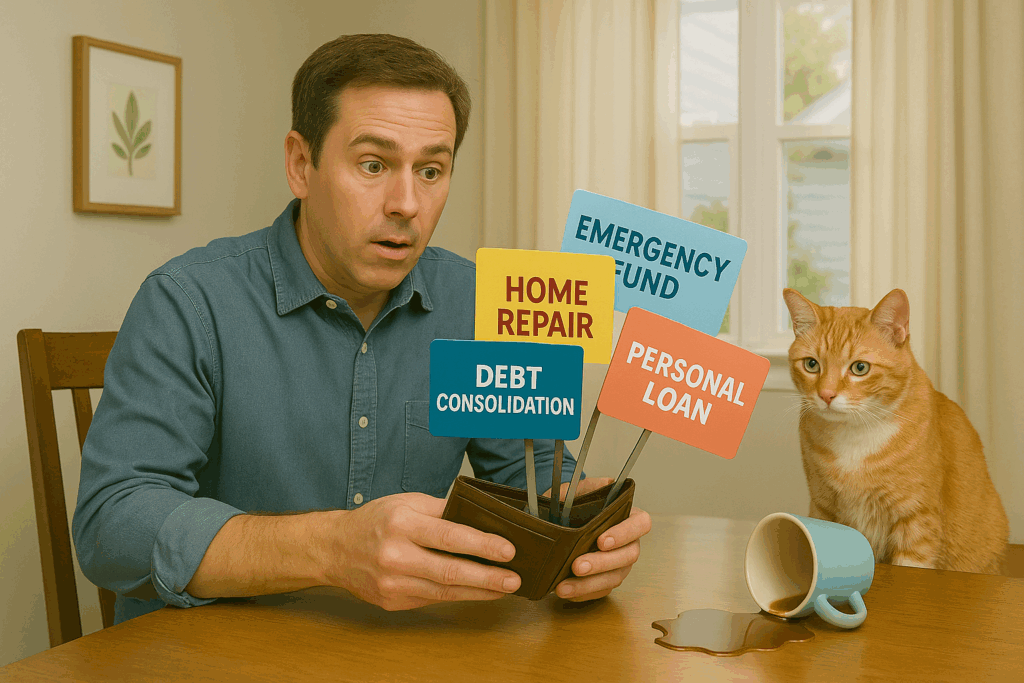What Is a Personal Loan and When Should You Use One?

Personal loans are one of the most flexible financial tools available, but many people don’t fully understand how they work or when they’re a smart choice. Whether you’re facing a financial emergency, consolidating debt, or planning a big expense, a personal loan can offer a structured way to borrow money often with lower interest rates than credit cards.
Let’s break down what a personal loan is, how it works, and the best (and worst) times to use one.
What Is a Personal Loan?
A personal loan is a type of installment loan you borrow from a bank, credit union, or online lender. You receive a lump sum of money up front, and repay it in fixed monthly payments over a set period (usually 1–7 years).
Key features:
- Fixed loan amount (typically $1,000 to $50,000+)
- Fixed interest rate
- Set repayment term
- No collateral required (unsecured loan)
Because it’s unsecured, lenders make approval decisions based largely on your credit score, income, and debt-to-income ratio.
What Can a Personal Loan Be Used For?
Personal loans are extremely versatile. Common uses include:
Debt Consolidation
Combine multiple high-interest debts—like credit cards—into one lower-interest monthly payment. This can simplify your finances and save money on interest.
Medical Expenses
Cover unexpected procedures, dental work, or gaps in insurance coverage without using a high-interest credit card.
Home Repairs or Renovations
When you need to fix a roof or upgrade a kitchen but don’t want to tap into your home’s equity.
Major Life Events
Weddings, moving expenses, or even funerals—events that come with high costs you need to manage upfront.
Emergency Situations
Car repairs, pet emergencies, or other urgent costs where you don’t have the cash on hand.
When Should You NOT Use a Personal Loan?
While personal loans can be helpful, they aren’t right for every situation.
To Fund Luxuries or Vacations
Using borrowed money to pay for non-essentials can create long-term debt for short-term enjoyment.
If You Don’t Have a Repayment Plan
Even with low interest, personal loans are still debt. If you’re unsure how you’ll pay it back, don’t take one out.
When You Qualify for Better Alternatives
If you have excellent credit and qualify for a 0% APR credit card, or if you own a home and can get a low-interest HELOC, those might be better fits depending on your needs.
How Does a Personal Loan Affect Your Credit?
- Hard inquiry when you apply (may drop your score a few points temporarily)
- Improves credit mix if you’ve only had credit cards
- Can raise your score over time with on-time payments
- Can hurt your score if you miss payments or default
Pro Tip: Avoid borrowing more than you can comfortably repay. Make sure your monthly payment fits into your budget.
How to Choose the Right Personal Loan
Look for:
- Low interest rates (APR matters more than just the base rate)
- No prepayment penalties
- Fixed monthly payments
- Lenders that report to all 3 credit bureaus
Compare multiple offers to find the best fit, especially from credit unions, online lenders, and even your bank.
Final Thoughts
A personal loan can be a powerful tool when used wisely. It offers flexibility, structure, and often a better alternative to high-interest credit cards or payday loans.
If you’re thinking about a personal loan, start by reviewing your credit and evaluating your options.
At CreditNerds.com, we help you clean up your credit and boost your score without paying a dime up front.
👉 Schedule your free consultation today!

